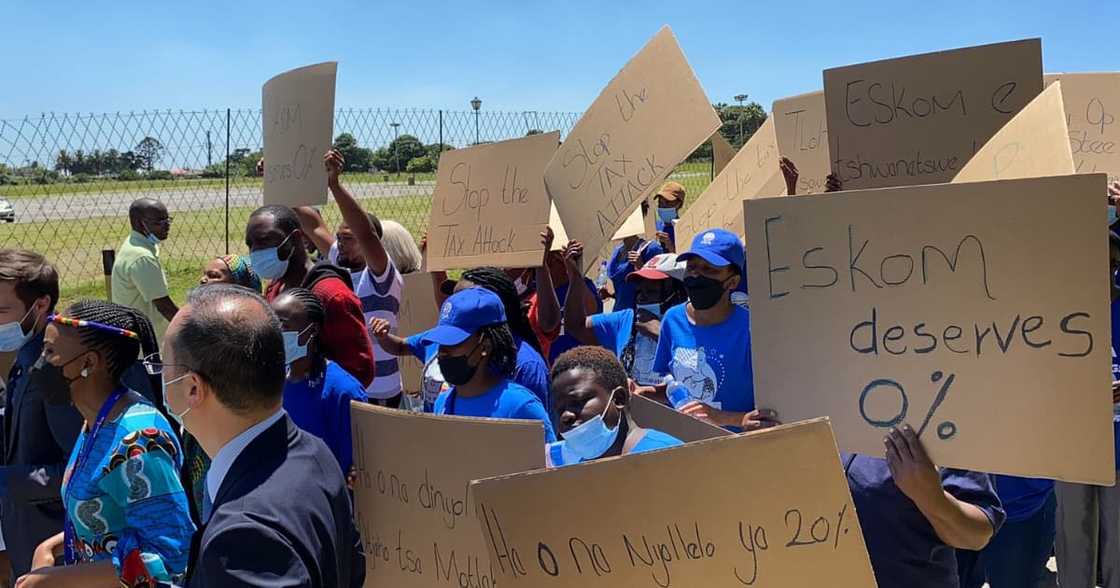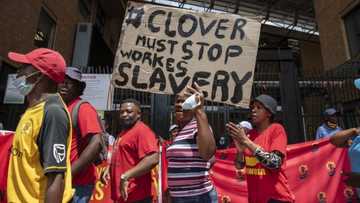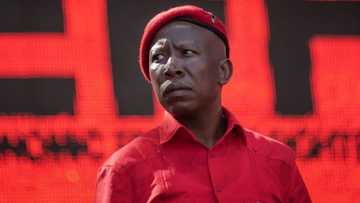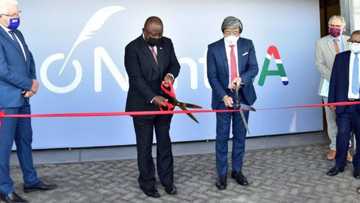DA Vows to Launch Intense Fight Against Proposed 20.5% Eskom Hike: 'It's No Use'
- The DA embarked on a picket amid the public hearings into Eskom's application for a tariff increase for 2022/2023
- The party's mayors of Midvaal, Johannesburg and Mogale City joined the proceedings and lambasted the power utility
- Some South Africans expressed solidarity with the DA online, with others expressing mixed reviews over the party's picket
PAY ATTENTION: Follow Briefly News on Twitter and never miss the hottest topics! Find us at @brieflyza!
JOHANNESBURG - It seems South Africa will not take a shallow stance on Eskom's proposed 20.5 per cent tariff increase as the Democratic Alliance (DA) tackles the embattled power utility head-on.
The party embarked on a picket outside the National Energy Regulator of SA (Nersa) public hearings at Gallagher Convention Centre in Midrand, Johannesburg, on Friday.

Source: Twitter
The DA mayors of Midvaal, Johannesburg and Mogale City, Peter Teixeira, Mpho Phalatse and Tyrone Gray, respectively, presented their objections against the proposed hike, saying it was entirely misinformed and that the party will fight intensely to stop it going ahead on 1 April.
"Nersa must quit presenting the facade of being Eskom's big brother. The energy regulator must think of creative ways in which energy can be supplied to South Africans for our economy to thrive," Gray said.
Enjoy reading our stories? Download the BRIEFLY NEWS app on Google Play now and stay up-to-date with major South African news!
Cost of electricity relatively low
The Mogale City mayor spoke of a bleak picture for citizens, especially the marginalised, as the cost of basic essentials will be impacted should the tariff hike go ahead, TimesLIVE reported.
“The Reserve Bank is the custodian for inflation targets, meaning it has the duty of ensuring it stays between 3 per cent and 6 per cent. If Eskom increases the tariffs it will affect the price of bread, fuel and water [among other things," Gray added.
BusinessLIVE reported that the price of electricity in South Africa remains relatively low compared to other countries on the global map. But evidently, the proposal comes at an unsuitable time for cash-strapped consumers due to the effects of the Covid-19 pandemic-hit consumers and SMME enterprises.
The report further said if granted, the tariff increase is likely to put the Reserve Bank in a spot of bother, as it will need to strike an even finer balance between the country's current economic outlook versus keeping the inflation rate in check.
Citizens express mixed views
The usual chitter-chatter followed on social media as South Africans from all walks of life gathered to air their views on the contentious topic. The overriding sentiments comprised of praise for the party for its firm stance against Eskom's planned move.
@Dabu Lucas Maleka wrote:
"As if we were guaranteed that the will never be load shedding ever again. Paying for an expensive unreliable power supply, while keeping guard with a generator that costs you expensive petrol."
@Sizwe Mcunu said:
"And the ones that we voted for are okay with this proposed tariffs hike, and they say they are pro-poor."
@Sakhokwakhe Derick Shongwe added:
"Ramaphosa and that CEO Andre they want to rip off the citizens to pay back what they have looted at Eskom."
Eskom says hefty tariff increase due in April
Elsewhere, Briefly News recently reported that Eskom is arguing that its proposed 20.5 per cent tariff increase for 2022/23 was driven by the requirement to increase purchases of energy from independent power producers (IPP) and an increase in carbon taxes.

Read also
Mass retrenchments at Clover cause prolonged strikes, workers refuse to stop until job security is offered
The embattled power utility announced the proposal on Monday during the first day of public hearings into its application to the National Energy Regulator of SA (Nersa). The increase in purchases of energy and carbon taxes accounted for 13.8 per cent of the proposed price hike.
Adding to the outlook, the national power supplier said operating expenses that shot up and other cost escalations in primary energy accounted for 7.5 and 6.5 per cent, respectively.
Source: Briefly News



